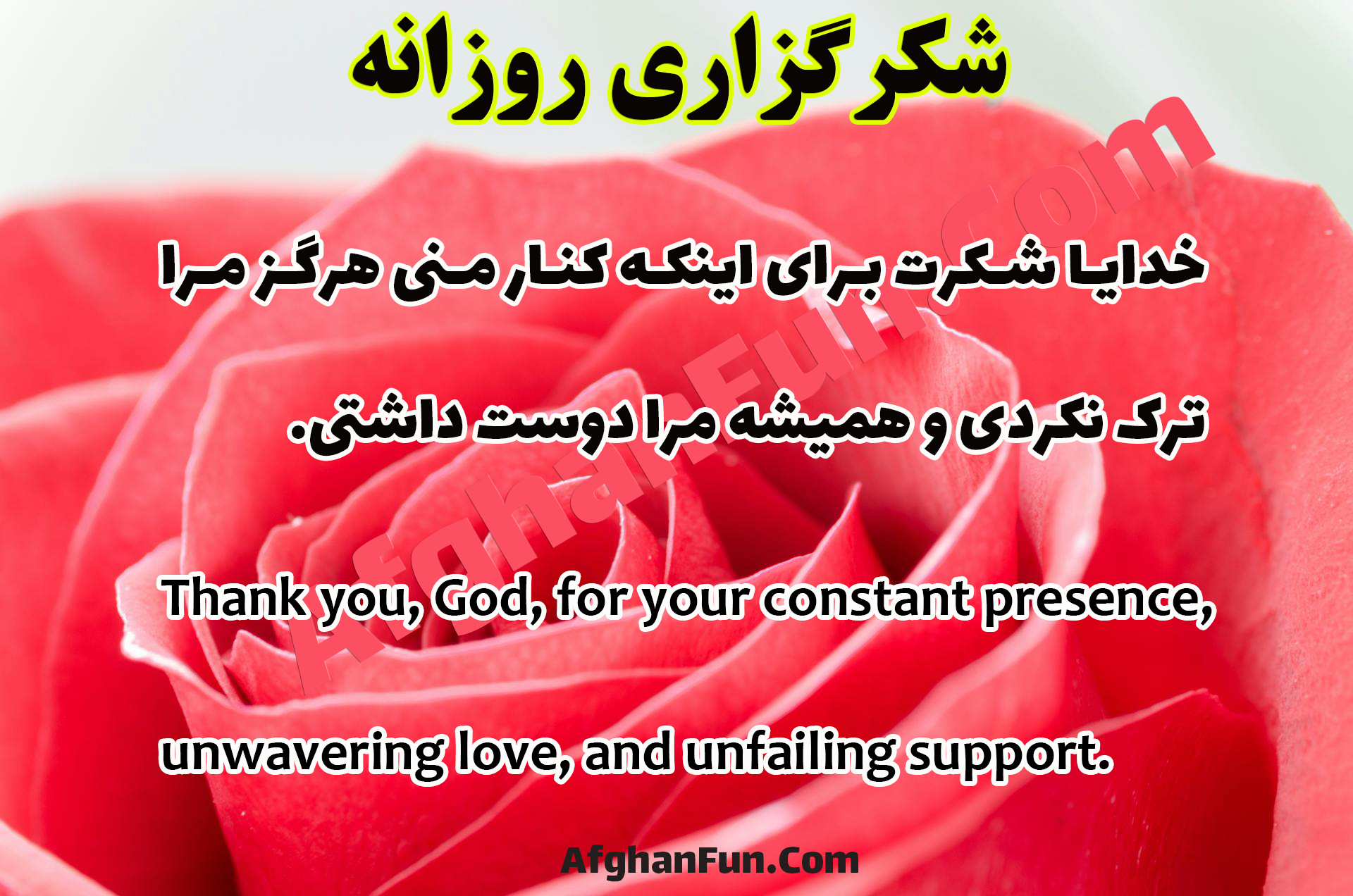Thank you, God, for your constant presence, unwavering love, and unfailing support.
Эй Худо, ман шукри ту мекунам, ки ҳамеша дар паҳлӯямӣ, Маро тарк накардаӣ ва ҳамеша дӯстам доштӣ.
خدایا شکرت برای اینکه کنار منی هرگز مرا ترک نکردی و همیشه مرا دوست داشتی.
This gratitude statement is concise yet powerful. Here’s an analysis of its components:
- Direct Address: The opening “Thank you, God,” establishes a clear and personal connection, making the expression of gratitude direct and heartfelt.
- Conciseness: The brevity of the statement conveys sincerity and focus. By distilling gratitude into three key elements—presence, love, and support—it emphasizes what is most important to the speaker.
- Three Core Elements:
- Constant Presence: This acknowledges a belief in God’s ever-present nature, suggesting comfort and reassurance in knowing that the divine is always with the speaker.
- Unwavering Love: This phrase reflects a deep appreciation for the unconditional nature of divine love. It suggests a sense of security and acceptance that comes from feeling loved by a higher power.
- Unfailing Support: This indicates reliance on divine assistance in life’s challenges. It portrays God as a source of strength, reinforcing trust and confidence in navigating difficulties.
- Emotional Resonance: The choice of words—”constant,” “unwavering,” and “unfailing”—evokes strong positive emotions. These adjectives convey a sense of stability and reliability in the relationship with the divine.
- Overall Tone: The tone is one of gratitude and reverence. It captures a profound appreciation for the foundational aspects of faith that contribute to the speaker’s sense of well-being.
Overall, this statement effectively encapsulates deep gratitude for key spiritual supports in a simple yet profound way. To enhance it further, the speaker might consider expanding slightly to include a personal reflection or a specific moment where they felt these qualities, which would add depth and personalization to the expression.











